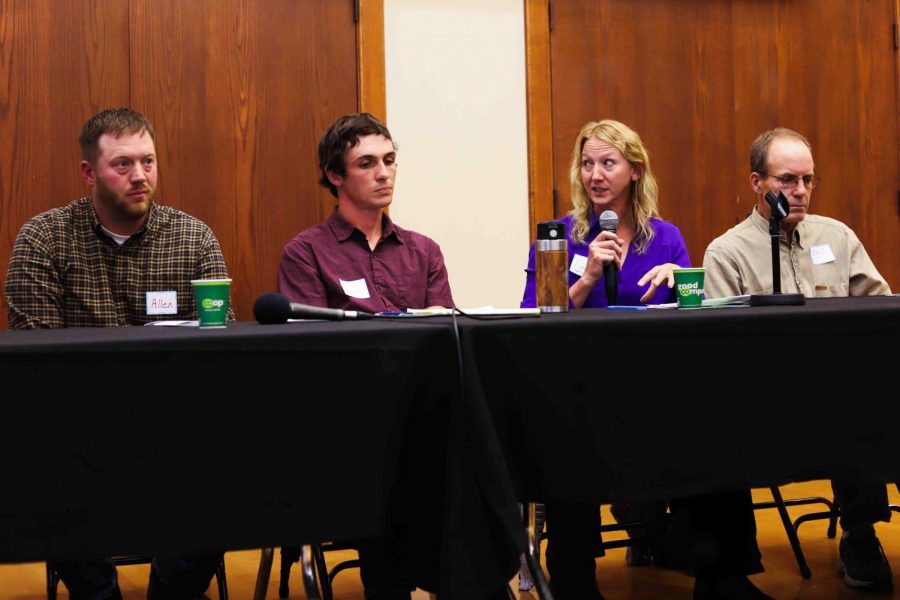Increasing number of farms go pesticide-free
Consumer demand has caused farmers to move to organic
ROLAND HUIE | THE DAILY EVERGREEN
Lynne Carpenter-Boggs, professor of soil science and sustainable agriculture at WSU, talks about conventional and organic farming during a forum on Tuesday evening at the Moscow Food Co-op.
September 11, 2019
The Moscow Food Co-op held a forum with a panel of local farmers and agriculture experts to discuss the difference between organic and conventional foods.
The forum was moderated by Kenton Bird, former journalist and current professor at the University of Idaho. Bird started the discussion by having the panelists introduce themselves along with their background on the topic.
Gwen Ayres, employee at the Idaho State Department of Agriculture, said organic foods started becoming common after World War II when there were lots of chemicals being used in the production of food. Organic foods started when people did not want chemicals used for food production, she said.
Organic foods became popular in the 1960s and 1970s. During this time, there were no rules or regulations defining “organic” foods, she said.
Ayres said in 1990, the government created the Organic Food Production Act. This act established national standards for foods being labeled as organic.
“Conventional is very evolved and changed,” said Lynne Carpenter-Boggs, WSU soil science and sustainable agriculture professor. “What was conventional 20 years ago is rare now.”
Ayres said to change from a conventional farm to an organic farm is a three-year process. It is becoming increasingly common for a farm to produce organic rather than conventional produce, she said.
Consumer demand has been the main driver of farmers moving toward organic farming, local farmer Luke Tonnemaker said. Tonnemaker’s family farm went organic in 2000 when their consumers expressed a preference for more organic food.
Tonnemaker said his farm was not using synthetic pesticides and it only made sense to start the process of becoming certified in 1997.
Bird asked the panelists for their opinion on whether organic or conventional food was better.
Ayres said most people believe organic is better because there are no pesticides being used. Organic farms do use pesticides, but they are natural rather than synthetic. The definition of better food is dependent upon the person buying the food, she said.
Many factors affect how a consumer thinks about the food they are purchasing, Tonnemaker said. Better food is influenced by crops, weather, soil and location.

















